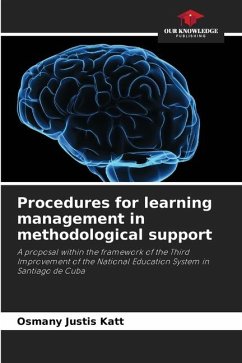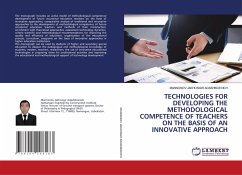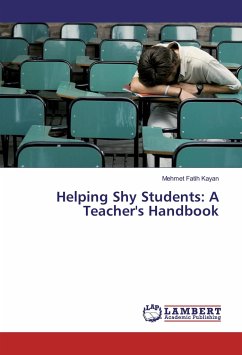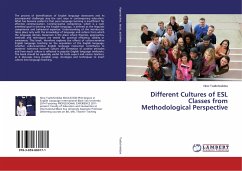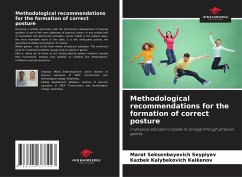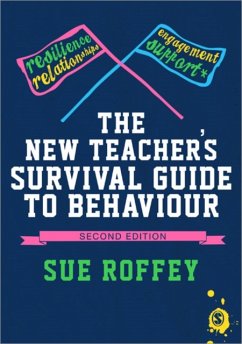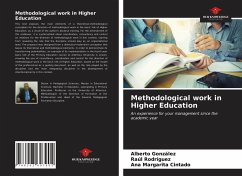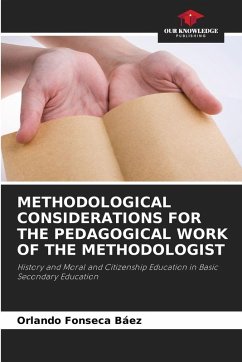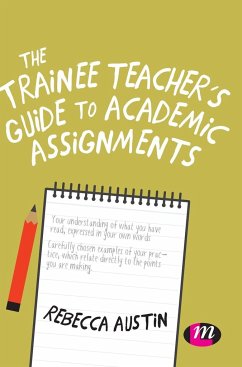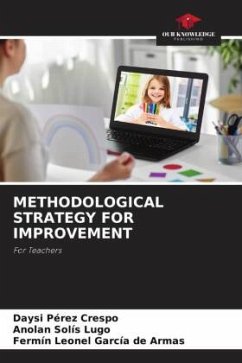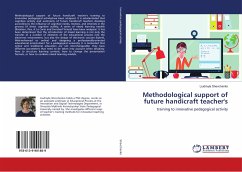
Methodological support of future handicraft teacher's
training to innovative pedagogical activity
Versandkostenfrei!
Versandfertig in 6-10 Tagen
46,99 €
inkl. MwSt.

PAYBACK Punkte
23 °P sammeln!
Methodological support of future handicraft teacher's training to innovative pedagogical activityhave been analyzed. It is substantiated that cognitive activity and autonomy of future handicraft teachers develops according to the influence of cognitive needs, motives, and interests in the process of direct cognitive activity. A series of mixed learning models (Rotation, Flex, A La Carte and Enriched Virtual) have been analyzed. It has been determined that the introduction of mixed learning is not only the transfer of a number of elements of the educational process into the electronic environme...
Methodological support of future handicraft teacher's training to innovative pedagogical activityhave been analyzed. It is substantiated that cognitive activity and autonomy of future handicraft teachers develops according to the influence of cognitive needs, motives, and interests in the process of direct cognitive activity. A series of mixed learning models (Rotation, Flex, A La Carte and Enriched Virtual) have been analyzed. It has been determined that the introduction of mixed learning is not only the transfer of a number of elements of the educational process into the electronic environment, but also the design of electronic courses (hybrid, Web-enhanced or online) and designing a professionally-oriented educational environment for a pedagogical university. It is motivated that online and traditional education are not interchangeable; they have different parameters that need to be taken into account when deciding: how to structure learning content, how to change the presentation formats, or how to combine mixed learning models.



